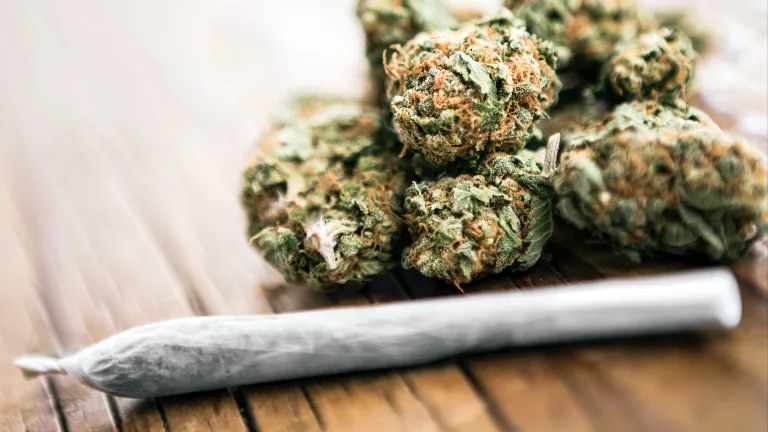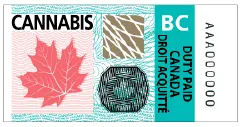Possession of marijuana

Marijuana possession is now legal in British Columbia — within limits. There are still restrictions around how much you’re allowed, where you can use it, and how you can buy it.
What you should know
New marijuana laws came into effect in BC in 2018. If you’re 19 or older, you can carry up to 30 grams of cannabis in public. Privately, you can have up to 1,000 grams — four plants’ worth — in your home.
These maximum amounts apply only to dried cannabis. The limits are different for other forms, such as fresh cannabis or cannabis oil. They’re also different for medical marijuana. (We’ll explain shortly.)
Wherever tobacco smoking is allowed, you can generally smoke or vape cannabis as well. (Again, that’s assuming you’re an adult.)
Under BC law, using cannabis is not allowed in the following public places:
Playgrounds, sports fields, skate parks, swimming pools — or any deck, seating or viewing areas in these places.
Public buildings, workplaces, or common areas of apartments or condos — or within six metres of their doorways, windows, or air intakes.
Within six metres of bus stops, train stations, ferry docks, or other transit hubs.
Regional, provincial, and municipal parks — except in designated areas.
Public patios. Some restaurants and bars in BC have a tobacco-smoking area on their patio. But you still can’t smoke (or vape) cannabis there.
Using cannabis is not allowed on school property or even on the adjacent streets.
Local governments can also restrict the public use of cannabis.
Under BC law, no one can use cannabis in a vehicle. Not even passengers.
The only exception is if you’re parked in a legal camping spot.
You’re allowed more marijuana If your health requires it. You can legally have up to 150 grams of dried cannabis, or a 30-day supply, whichever is lower. And you can use it in public.
But you must prove you need it. You have to get a note from your doctor. (That is, a medical document recommending cannabis to treat your symptoms.) Or else be legally registered to either grow your own plants or have someone grow them for you.
Under BC law, medical marijuana is allowed on school property, and on transit. But you must meet specific requirements, such as carrying proof that you need it.
Cannabis is legally sold at licensed retailers and the BC government’s online store. These places must prominently display their licence. All legal (non-medical) cannabis has an excise stamp. If you don’t see the distinctive British Columbia stamp on the package, the cannabis is illegal.

Under BC law, it’s illegal to possess more than 30 grams of dried cannabis in public. (For medical marijuana, it’s 150 grams or a 30-day supply, whichever is lower.) Breaking this law is not a criminal offence. Instead, it’s like breaking the Liquor Control and Licensing Act. The police can give you a ticket, which can land you a fine and possible jail time. But you won’t get a criminal record as long as you pay the fine. For a first offence, the fine can be up to $5,000, the jail time up to three months.
If you’re found with more than 50 grams of dried cannabis, you can be charged under the Controlled Drugs and Substances Act. This is a criminal offence, and can result in a criminal record.
Facing a cannabis possession charge, you must decide how to plead. Pleading guilty means you accept responsibility for the offence. Pleading not guilty means the court will set a trial.
At the trial, the prosecutor (also called Crown counsel), must prove three things beyond a reasonable doubt: knowledge, consent, and control. The prosecutor will argue that:
you had control of the marijuana — for example, the police found it on you or your property (for example, in your car, suitcase, or bedroom), and
you knew it was there, and
you consented to having it there.
If the prosecutor proves all these things, the judge will convict you. To make their case, the prosecutor will call witnesses. They’ll tell the court (testify) what they know. You can question (cross-examine) any of them.
After that, you get to give your side of the story. There are a couple of ways to do this. You might testify (give evidence) yourself. You don’t have to. If you do, you take an oath promising to tell the truth. If you have any witnesses who saw what happened and can support your version, you can call them to testify. The prosecutor can cross-examine them.
You and the prosecutor then summarize your positions by making submissions to the court.
For more on the process, see our information on defending yourself against a criminal charge.
Penalties for possession of marijuana over the legal limit depend on the amount of marijuana involved. The court typically gives fines for smaller quantities and up to five years in jail for larger quantities.
Penalties also depend on how the Crown proceeds in the case. Possession over the legal limit is a hybrid offence, meaning the prosecutor can treat it as a less serious (summary) offence or a more serious (indictable) offence. If the prosecutor treats it as an indictable offence, the penalties are higher: up to five years in jail.
Common questions
The law defines “cannabis” as the plant itself or anything you consume that’s made from it. The legal limit of 30 grams is for dried cannabis. One (1) gram of dried cannabis is equal to:
5 grams of fresh cannabis
15 grams of edible product
70 grams of liquid product
0.25 grams of concentrates (solid or liquid)
1 cannabis plant seed
This means you can legally possess, for example, 150 grams of fresh cannabis.
Yes — a small amount is less serious. The more you have, the greater your chance of being charged with possession for the purpose of trafficking. That’s a more serious offence with more serious penalties.
No. It’s illegal to transport cannabis across the Canadian border. It doesn’t matter whether you’re leaving or entering Canada. It doesn’t matter what the laws of your destination are. It doesn’t even matter if you’re authorized to use cannabis for medical purposes. Or how much you have with you. The upshot: it’s against the law.
If you’re under 19, you can’t possess or use cannabis. It’s illegal. (There’s an exemption for medical marijuana.)
If you’re under 19 and found with more than five grams of cannabis, the police can give you a ticket. The penalty is a $200 fine. If you pay it, you won’t get a criminal record.
It’s an offence to sell or supply cannabis to someone under age 19.
Who can help
The legal issues for possession of marijuana over the legal limit can be complex. And a conviction can seriously harm you. You can call the Lawyer Referral Service to get the name of a lawyer. You can speak to the lawyer for a free 15-minute consultation, to help decide whether you would want to hire them.
Call 604-687-3221 (Greater Vancouver) or 1-800-663-1919 (toll-free)
You can contact Legal Aid BC to find out if you qualify for a free lawyer under legal aid.
Call 604-408-2172 (Greater Vancouver) or 1-866-577-2525 (toll-free)
If you can’t afford to hire a lawyer and you don’t qualify for legal aid, try to at least talk to a lawyer. They’ll help you decide how to respond to any charge against you. On your first appearance in court or when you enter your plea, you can talk to duty counsel at the courthouse. These are lawyers who give free legal advice to people who have a case in the courthouse on that day.
The BC government’s Get Cannabis Clarity website explains cannabis laws, including where you can buy, use or grow marijuana.
The federal government’s Cannabis in Canada website summarizes cannabis laws.
This information from People’s Law School explains in a general way the law that applies in British Columbia, Canada. The information is not intended as legal advice. See our disclaimer.
